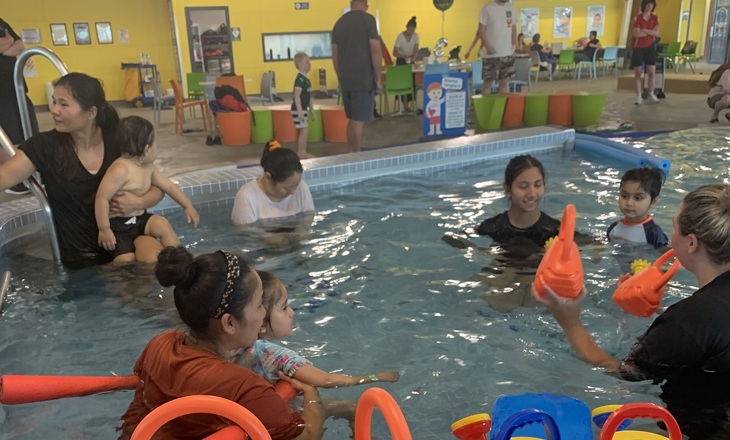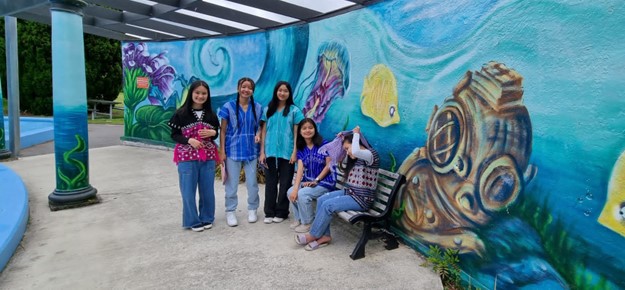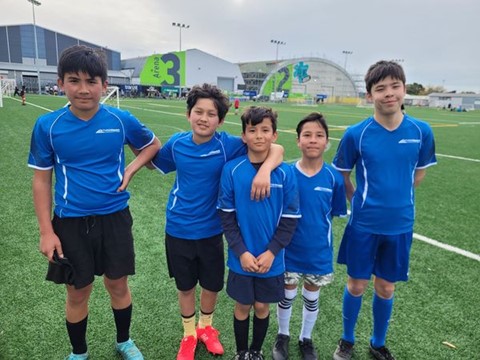Please note this content has now been added to the Archives.
It is available for reference purposes but otherwise neither maintained nor updated.
If you require an accessible version please contact info@sportnz.org.nz.
Manawatū former refugee community have a go and get active
Manawatū former refugee community have a go and get active

Innovative partnership brings Manawatū former refugee community together through physical activity initiatives
Involvement in new physical activity experiences and opportunities has given a group of Manawatū former refugees and migrants new-found confidence, community connections and a sense of belonging.
Palmerston North-based primary health organisation THINK Hauora has run three projects as part of its RIMA wellbeing programme that targets former refugees and multi-cultural communities. (RIMA stands for Refugee, Internally displaced person, Migrant and Asylum seeker.)
Using Tu Mānawa funding through Sport Manawatū, the projects have included a weekly youth soccer programme, a have-a-go programme for young females, and family-oriented sports sessions.
“While we focus on primary health, we know that in the RIMA community, physical activity is one thing that connects them, it’s something that relates back to their homes, and one that gets them participating and engaging in society,” says RIMA connecting communities lead, Febry Suharto.
“We aim to enhance the wellbeing of our RIMA community through improved participation, empowerment and more culturally inclusive experiences and these projects have done exactly that.”
The youth soccer programme involved the Afghan Community Society, with weekly games seeing numbers skyrocketing from 20 to 52 over its three-month period.
Parents were able to carpool to get to games at various grounds, which helped curb transport issues. Players in each team were also given a sense of belonging by wearing team t-shirts on game day, as well as being provided with water bottles and football gear.

Many have now gone on to join soccer clubs, with one participant even given a scholarship to enable him to strive for his goal of one day becoming a professional.
Meanwhile, a group of young women have grown in confidence and made friends through weekly sport and recreation activities they hadn’t experienced before.
The have-a-go programme was made up of young women from different communities, with activities ranging from bowling and golf to yoga and Zumba, and culminating with a cultural event.
“We started with 12 girls and ended up with about 80, all of whom now feel confident enough to go for walks together and join classes outside of the programme, which means the programme has given them empowerment and confidence to go out and try new activities,” says Febry.
The third initiative for the Feilding-based Bhutanese community provided opportunities for families to try new sports and activities like badminton and basketball on a Sunday.
“Often people in this community work very long hours, which means they are isolated from activities and services available during the day and after hours,” says Febry.
“We had family members ranging from four to 80 years old having a go at new activities. It was great to see families that work six to seven days a week making time to reconnect with each other and their community and enjoy being involved in sport and recreation activities.”
Now, THINK Hauora is working alongside Sport Manawatū to look at ways to build on these programmes, particularly the family activity days in Feilding.
Partnering with a primary health organisation is a new concept, but Sport Manawatū’s Keegan Bremner and Febry agree that thinking “outside the box” is a win-win situation.
“THINK Hauora is so connected to these communities already, it’s been a huge help to reach those people and break down barriers,” says Keegan.
“Collaboration is a great way to achieve that over-arching goal of connecting and supporting organisations to work together to improve community health and wellbeing.”
As Febry says, play, recreation and sport bring physical, emotional, spiritual and mental health together, all of which help to fill that wellbeing cup.
